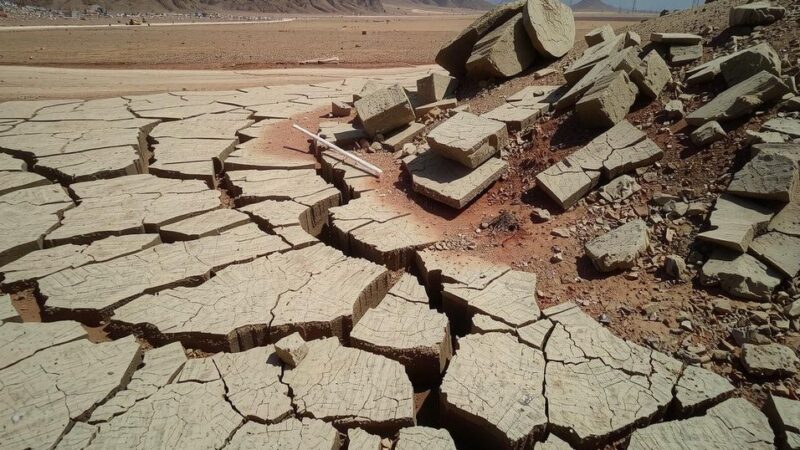Cyclone Chido has caused catastrophic damage in Mayotte and Mozambique, resulting in over 120 deaths in Mozambique and significant injuries in Mayotte. Hundreds of thousands are facing a humanitarian crisis, with urgent needs for shelter and food reported. The destruction impacts particularly vulnerable populations, prompting humanitarian organizations to mobilize for assistance as the regions face rising challenges in the aftermath of the cyclone.
Cyclone Chido has wreaked havoc across Mayotte and Mozambique nearly a week after its passage. The storm, which struck between December 14 and December 17, unleashed winds reaching up to 243 km/h and heavy rainfall, leading to widespread power, water, and communication outages. The cyclone’s impact has thrust hundreds of thousands into a severe humanitarian crisis, currently exemplified by rising death tolls: at least 120 fatalities reported in Mozambique and 35 in Mayotte, along with 2,500 injuries.
In Mayotte, where many homes could not withstand the storm’s fury, the aftermath is harrowing. Eight-year-old Kamar, who lost everything, described the emotional turmoil his family faces: “My house was completely destroyed. We’ve lost everything. Everyone is sad. We need everything: food, water, clothes… electricity.” As the human toll escalates, the destruction in Mozambique is particularly dire, with tens of thousands of homes wrecked.
The United Nations has identified at least 380,000 people affected in Mozambique, including over 90,000 children in Cabo Delgado. The districts of Mecúfi and Metuge saw 99% of homes destroyed, leaving approximately 16,000 families without shelter as the rainy season begins. With urgent needs for shelter, cooking utensils, and mental health support, humanitarian organizations are mobilizing resources to assist the significantly affected individuals.
HI, a prominent humanitarian organization that has been active in Mozambique since 1986, is conducting needs assessments, particularly focusing on vulnerable populations, including individuals with disabilities. The urgency of providing support is underscored by eyewitness accounts, such as that of emergency nurse Claire, who remarked on the catastrophic change in Mayotte’s landscape: “Nobody had ever seen or experienced anything like this before.” The collaboration among humanitarian actors and authorities remains critical in navigating this crisis.
Cyclone Chido recently devastated regions in Mayotte and Mozambique, leading to unprecedented humanitarian challenges. The storm was characterized by violent winds and extensive rain, resulting in substantial infrastructure damage and loss of life. As the affected communities struggle with the aftermath, humanitarian organizations are mobilizing to provide essential support to those in dire need. This cyclone demonstrates the severe impact extreme weather events can have on vulnerable populations, particularly in regions unaccustomed to such disasters.
In conclusion, the aftermath of Cyclone Chido has left Mayotte and Mozambique grappling with a humanitarian crisis marked by significant destruction and loss of life. As support efforts ramp up, the need for shelter, food, and mental health resources is critical. The collaboration among humanitarian organizations and local authorities will be essential in addressing the needs of the affected populations and paving the way for recovery and rebuilding. This disaster underlines the importance of preparedness in the face of climate-related adversities.
Original Source: reliefweb.int






